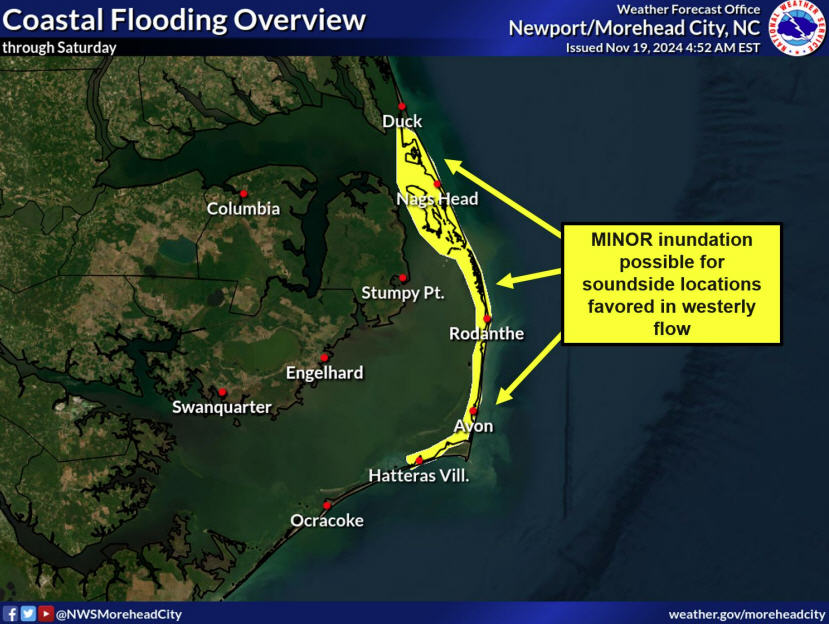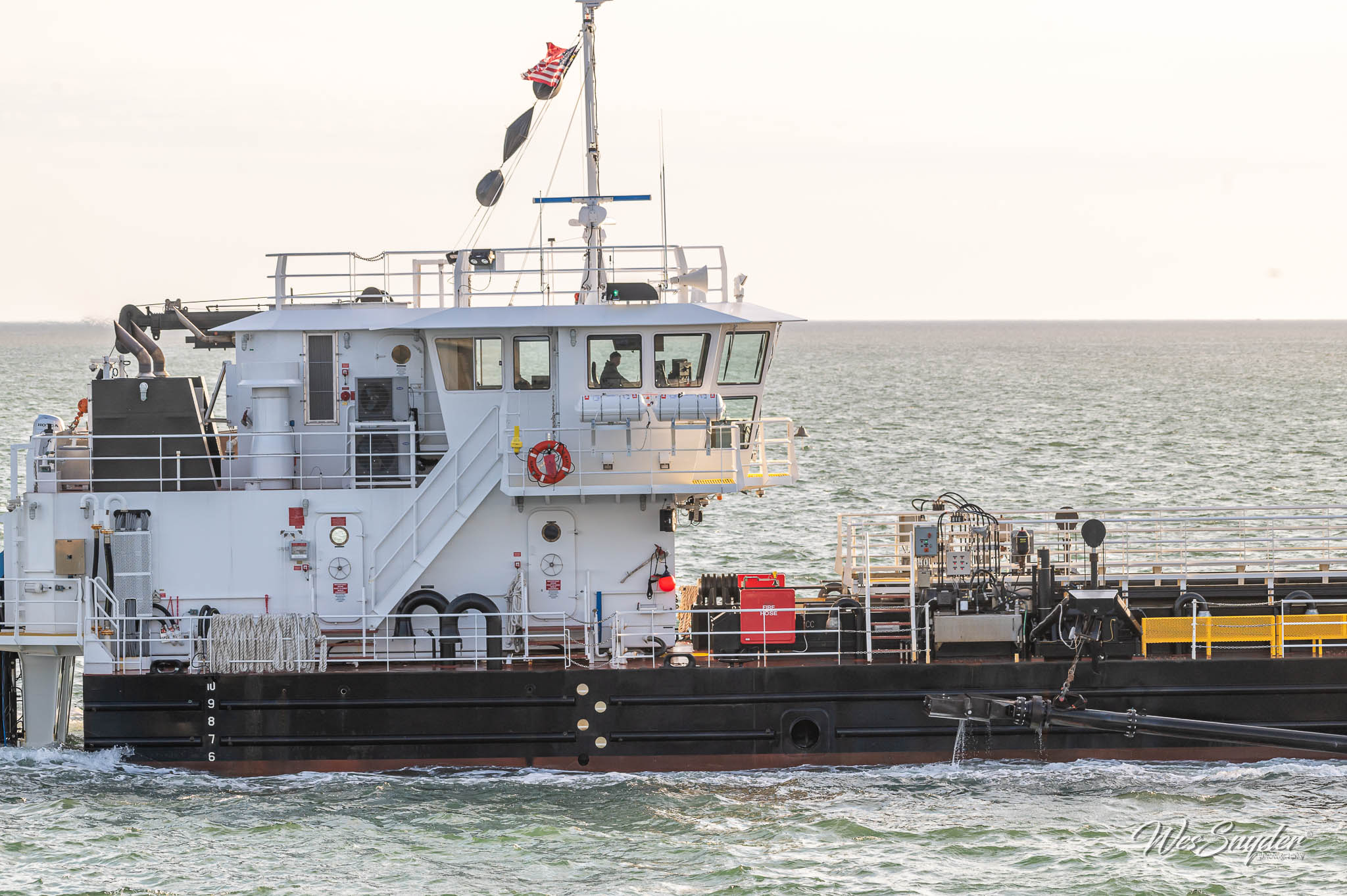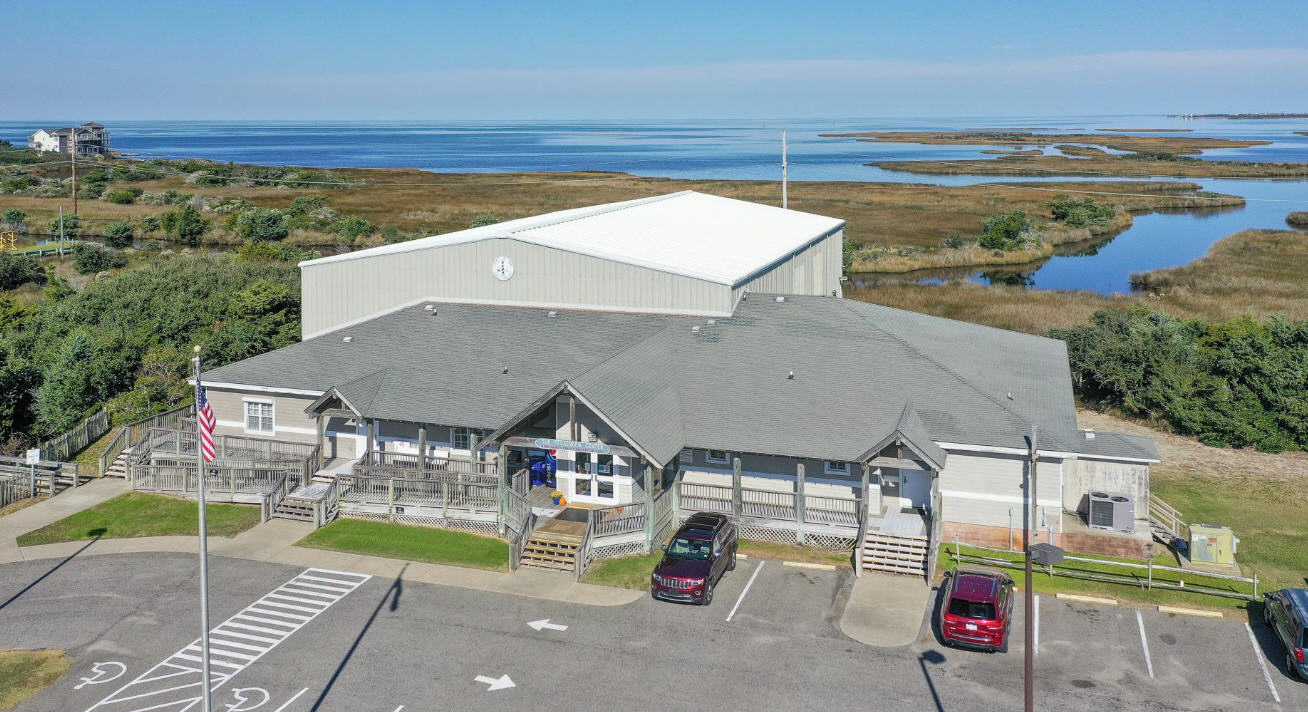Walking Ocracoke’s beach with Henry David Thoreau: Part 4
“I wished to see that seashore where man’s works are wrecks…where the ocean is land-lord as well as sea-lord, and comes ashore without a wharf for the landing; where the crumbling land is the only invalid, or at best is dry land, and that is all you can say of it..”
–Henry David Thoreau
On March 20, I set out to walk the southernmost part of Ocracoke Island, to look at the ocean once more through the eyes of 19th century naturalist Thoreau.
In order to begin this part of my walk, I had ridden my bicycle down South Point Road, passing through the vast expanse of salt marsh that straddles both sides of the sandy lane. As the wind grew stronger and the sand softer near the road’s end, I gave up riding and walked my bike to a spot where I could lay it down behind a dune.
The road emerged here into a vast expanse of sand spreading in all directions and disappearing finally into the sea — a place which, in storms and hurricanes, was swallowed by the waves and where the ocean was indeed land-lord as well as sea-lord.
The dunes and vegetation that had reached nearly to the ocean farther up the island were far away, the electric poles following the highway out of sight. Standing here, I could imagine myself in a great sand desert, and I compared this vista to Thoreau’s description of the great flats on Cape Cod, of which he said:
“All the aspects of this desert are beautiful, whether you behold it in fair weather or foul, or when the sun is just breaking out after a storm, and shining on its moist surface in the distance, it is so white, and pure, and level, and each slight inequality and track is so distinctly revealed; and when your eyes slide off this, they fall on the ocean.”
The shell hash near the shoreline created an interesting pattern here– stripes lined up side-by-side with stripes of sand, suggesting an interesting mix of currents and substrate. Further down, the cacophony of the direction of the current was even more apparent, as sunlight gleamed on water rushing into shallow channels and around and back, folding over other currents and waves.
The beach here was crisscrossed with tire tracks, though not nearly as many as in later spring. This was the favorite area for surf fishing, and even this early I saw a few fishermen with their lines out. Further up, however, was a zone that was closed off for shorebird nesting and marked with signs which forbade both vehicles and foot traffic.
The signs were reminders that this was a national seashore, and that there were angry debates going on about driving on these beaches and its impact on these birds.
The creature that has caused most of the stir is the piping plover, federally listed as a threatened species. Thoreau frequently mentioned these little shorebirds in Cape Cod, and he said that:
“ …if I were required to name a sound, the remembrance of which most perfectly revives the impression which the beach has made, it would be the dreary peep of the piping plover…”
On another page he wrote:
“I turned up the first hollow. A piping plover peeped around me there, and feigned lameness,–though I at first thought that she was dusting herself on the sand,–to attract me away from her nest evidently.”
Walking just a bit seaward of the fence of posted signs, I found myself in a series of small sand hills which made it necessary to watch ones step or topple over. Driving this stretch in the past had felt like taking a roller-coaster ride. It brought to mind Thoreau’s description of what he called “regular hollows or dimples” in the sand on the Cape, or upon approaching Provincetown, walking across “great ripples.”
Thoreau wrote about his visits to Cape Cod:
“The seashore is a sort of neutral ground, a most advantageous point from which to contemplate this world. It is even a trivial place. The waves forever rolling to the land are too far-traveled and untamable to be familiar.”
I found myself contemplating, not only the island of Ocracoke and the sea, but the world. The seashore is, as he said, a wonderful place for thinking, and I have done a lot of it on Ocracoke’s beaches.
Horrific events on the other side of the globe made it hard now to evade such contemplation. As I watched the waves roll in, I was reminded of the images I had seen on television of the tsunami that had recently devastated northern Japan. When the waves approached, I simply walked higher up on the beach to avoid soaking my shoes. That option had not been available to the thousands who died in that tragedy.
Thoreau’s words, written in 1849, described what that ocean could, and had so recently, become:
“…this same placid ocean, as civil now as a city’s harbor, will erelong be lashed into sudden fury…It will ruthlessly heave these vessels to and fro, break them in pieces in its sandy or stony jaws, and deliver their crews to sea monsters. This gentle Ocean will toss and tear the rag of a man’s body like the father of mad bulls, and his relatives may be seen seeking the remnants for weeks along the strand..”
As you walk, you can look away from the ocean here, back across the dunes, and get a glimpse of one of Ocracoke’s favorite attractions, the lighthouse.
The Ocracoke Light, built in 1823, is one of the oldest on the East Coast and, while not the tallest, it is surely one of the prettiest. Thoreau took note of the lighthouses he saw on Cape Cod, and spent a night at the Highland Light. Built in 1798, it stood, at the time of Thoreau’s beach walk, twenty rods from the edge of the bank, and rose 110 feet above its base.
He described accompanying the lightkeeper on his rounds:
“At rather early candle-light he lighted a small Japan lamp…and told us to follow him. He led the way first through his bedroom…then into the lower part of the lighthouse…thence we ascended by a winding and open iron stairway, to a trap-door in an iron floor, and through this into the lantern…The light consisted of fifteen argand lamps, placed within smooth concave reflectors…We walked slowly round in that narrow space as the keeper lighted each lamp in succession.”
Thoreau’s exploration of Cape Cod included visiting some of the towns there, including Provincetown.
Now, glimpsing Ocracoke’s lighthouse and water tower, I couldn’t resist referring to his 1857 description of staying at an inn there, as it reminded me of a few occasions in my own home.
He wrote that, while staying at the inn:
“…the window could be kept open, though at the risk of being visited by the cats, which appear to swarm on the roofs of Provincetown like the mosquitoes on the summits of its hills…At still midnight, when, half awake, half asleep, you seem to be weltering in your own blood on a battlefield, you hear the stealthy tread of padded feet belonging to some animal of the cat tribe, perambulating the roof within a few inches of your head. “
Okay, it’s not that bad here, but Ocracoke does have its fair share of cats, and there have been a few that liked to ramble around on my roof top. Fortunately, at least so far, we do not have the other distraction he mentioned in describing his nights in Provincetown:
“I have spent four memorable nights there…and have added considerably thereby to my knowledge of the natural history of the cat and the bedbug. Sleep was out of the question..to say nothing of what is to be learned in entomology.”
Hopefully the bedbug infestation that is tormenting many Americans in other places will stay away from Ocracoke!
A few yards farther on, I saw a plastic water bottle lying in the sand. Whether dropped in carelessness or tossed out an SUV window, it was a sad reminder (one of the few, fortunately, that I had seen that day) of how we humans are trying our best to trash the earth.
Tossed out on a beach, plastic water bottles wash into the sea where they may, like balloons, entice sea turtles to eat them. If not eaten, they may become part of the huge plastic masses that float like dead continents in the ocean. Thrown into trash containers, they fill our landfills, creating ever more need to despoil the earth with our trash. Even recycled, they contribute to oil consumption and pollution.
Thoreau spoke of finding a bottle at Cape Cod in 1849, but at that time plastics had not yet been invented. His bottle would have been glass, which is far less harmful to the environment, and surely less mundane and prolific.
“I picked up a bottle half buried in the wet sand, covered with barnacles, but stopped tight, and half full of red ale, which still smacked of juniper,–all that remained I fancied from the wreck of a rowdy world…but as I poured it slowly out onto the sand, it seemed to me that man himself was like a half-emptied bottle of pale ale, which Time had drunk so far, yet stopped tight for a while, and drifting about in the ocean of circumstances, but destined erelong to mingle with the surrounding waves, or be spilled amid the sands of a distant shore.”
I pondered his words as I walked on. When he said “man,” I wondered, did Thoreau mean humankind as a whole, or were his words defining an individual? I thought that I could see myself as that half-empty bottle, adrift in uncertainty, not sure where I would land, but struggling to determine where my destiny lay.
The crash of surf was less distinct here, waves lower and longer. I was approaching Ocracoke Inlet, the channel which separates Ocracoke from Portsmouth Island.
I have stood at that shoreline many times and gazed across at Portsmouth, trying to imagine the busy town that once bustled with life there. Now it is a ghost town, preserved as part of the Cape Lookout National Seashore, its prosperity destroyed when the inlet silted in and ship traffic went elsewhere. I planned to dip my toes into the waters of that inlet before turning back.
It was with shock, therefore, that I realized that the previously mentioned no-trespassing fence had curved around to close off the beach before me. I would not be able to complete my walk to the end of Ocracoke. I did not begrudge the piping plovers their safe nesting grounds, but I felt somehow cheated out of what I had come to feel was my right to walk on Ocracoke’s beaches.
I turned around and, now walking into a strong wind, headed home. I felt that my studies of Thoreau’s classic “Cape Cod,” along with my ramblings on Ocracoke’s beaches, had led me to new understanding of both.
“Got home at 5 P.M.”
Henry David Thoreau, June 22, 1857
Subject
Name
(required, will not be published)
(required, will not be published)
City :
State :
Your Comments:
May be posted on the Letters to the Editor page at the discretion of the editor.
May be posted on the Letters to the Editor page at the discretion of the editor.
May be posted on the Letters to the Editor page at the discretion of the editor.
May be posted on the Letters to the Editor page at the discretion of the editor.











